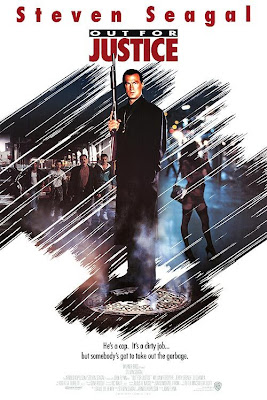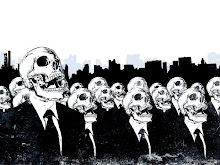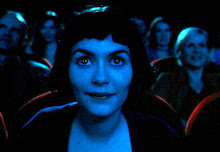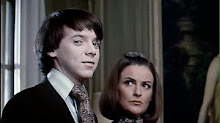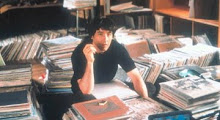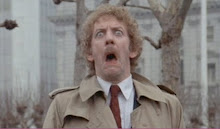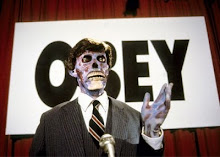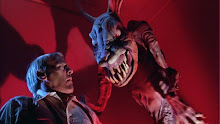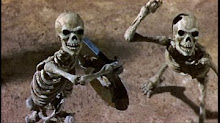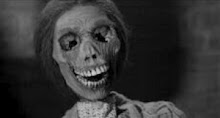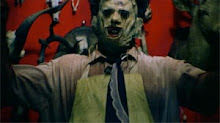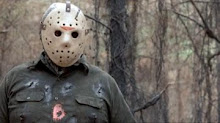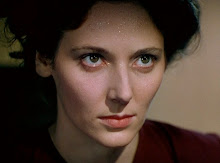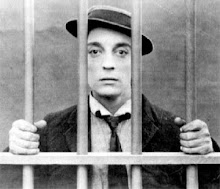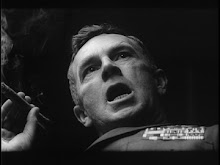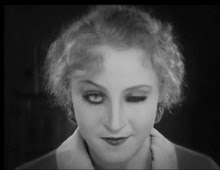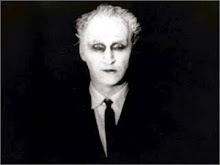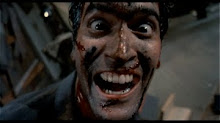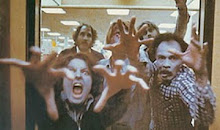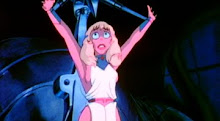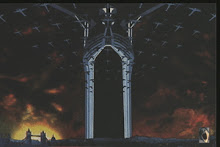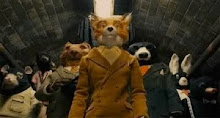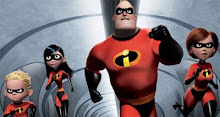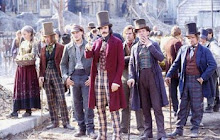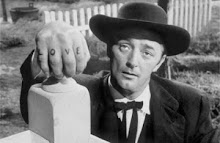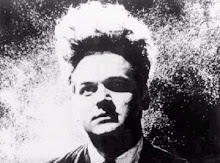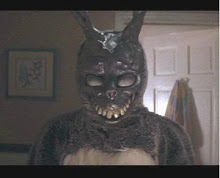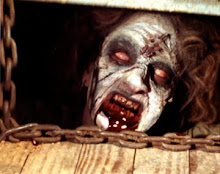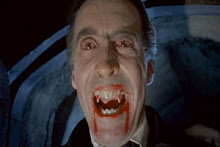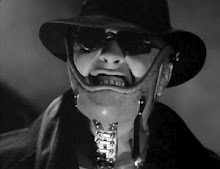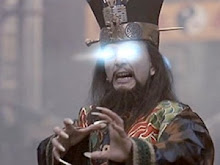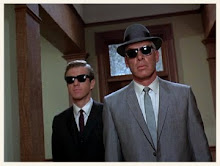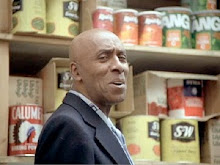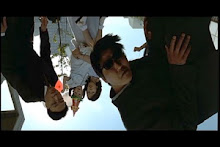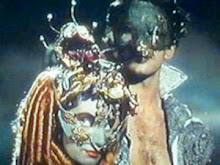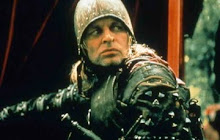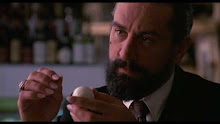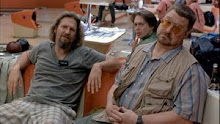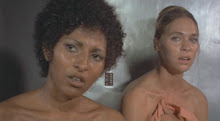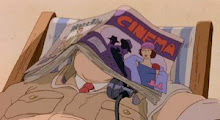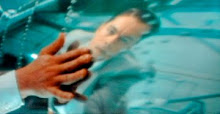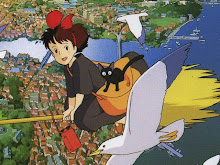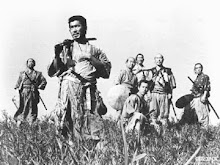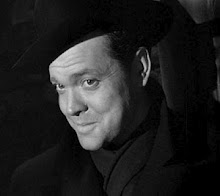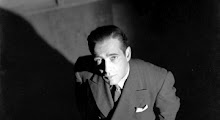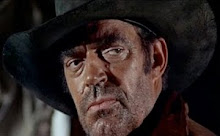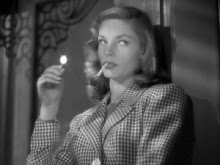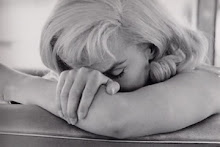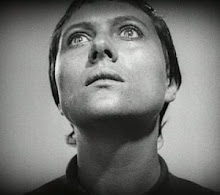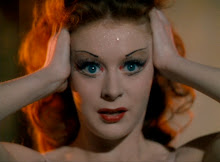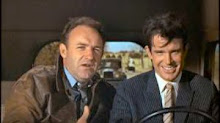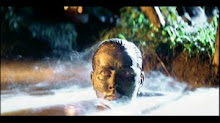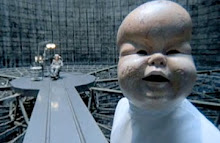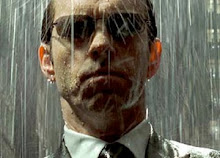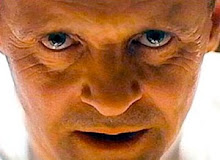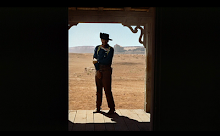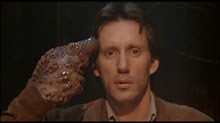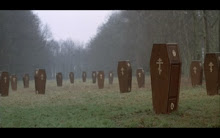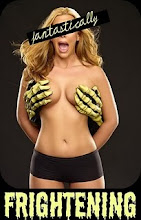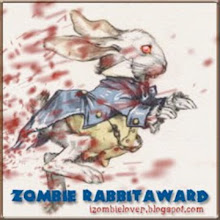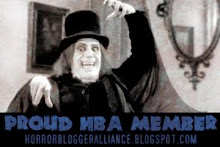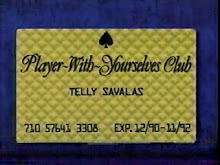Most Disapointing: Swamplandia: I’ve read worse books this year (see below) but none that were quite so dispiriting as watching this lively original novel sink in a mix of grad school clichés in the final third. Like watching one of Russell’s indomitable Bigtrees take a perfect swan dive off the highboard only to plunge directly into the gullet of a gator upon landing.
Worst: My Boyfriend Wrote A Book About Me: I know Sloane Croasley, and you ma’am are no Sloane Croasley.
10. The Wise Man’s Fear/ The Magician King:
There is true magic in both of these imperfect, wildly ambitious, wonderful sequels.
The Wise Man’s Fear takes The Name Of The Wind and turns it up to eleven. For all the good and bad that that implies. On one hand, no book that contains the line “Thank the moon for sending me this lusty young manling,” (a line that caused my sister to laugh from one end of a long car trip to the other) can be said to be perfect. Around Kvothe’s eighth sensual encounter with the sex ninjas, it takes a powerful reader not to wish that Rothfuss had perhaps chosen to limit himself to four. And like The Name Of The Wind, one reaches the end of the book with the dispiriting realization that not all that much has happened.
And it doesn’t matter.
The Kingkiller Chronicles are the rarest and most valuable of stories, those that are entirely in the telling and not the tale. Rothfuss is simply put a wonderful storyteller. As his smooth prose unfurls the reader is helplessly drawn deeper and deeper in. In his ambitious, deeply humanistic fantasy epic, Rothfuss is giving us the fantasy story of our age. And doing it with a skill that makes me frankly angry that when I turn to my bookshelf there are only two books that bear his name on their spine.
Believe me, there is no book I anticipate more than the final volume in this story. If Rothfuss is somehow able to pull off this absurd dare he has set for himself and get everything he has promised into the final volume it will be simply wonderful. Even if he doesn’t, one can’t help but be thankful for storytellers like him.
The Magician King is something altogether, and powered by a different sort of magic. In it, Grossman does nothing less than an act of transubstantiation. Turning the very ambitious dissertation that was The Magicians into a real life story. It’s thrilling, like watching The Blue Fairy turn Pinocchio into a real boy.
In a daring move that pays dividends Grossman splits the narrative between occasionally insufferable malcontent Magician, Quentin Coldwater’s reluctant stumbling progress towards actual heroism and his childhood friend Julia’s brutal quest for self knowledge. The most ill advised search for truth since Harry Angel made that trip to New Orleans. Equal parts The Chronicles Of Prydain and Darren Aronofsky. The Magician King climaxes with a vile parody of religious enlightenment and a galvanizing blast of what may be the real thing. For all the admiration that The Magicians got, there were those who insisted on writing off Grossman as a clever boy. This ought to shut them up nicely.
8. Fear And Loathing At Rolling Stone/ Pauline Kael The Age Of Movies:
Fitting tributes to two of the finest Raconteurs American letters have produced. Both of these volumes capture the authors in all of their complexity. Both their unassailable brilliance and their infuriating lapses.
Fear And Loathing At Rolling Stone chronicles Thompson’s dizzying rise, blazing a trail of scorched earth through a thicket of stupidity and hypocrisy. Inarguably climaxing in Fear And Loathing On The Campaign Trail, a work that is generously excerpted here in that will stand alongside a Modest Proposal as one of the greatest works of satire created. It also is merciless in its documentation of Thompson’s decline, while being careful to highlight the flashes of brilliance that could still spring from Thompson’s typewriter.
I do have some issues with the anthology, including the baffling decision to abridge some of the pieces. But as a whole the collection is a fitting tribute to the man and helped me finally come to peace with my all too human idol. Can’t ask for much more than that.
Kael I have a much less personal relationship. Her work has always been too dogmatic and vindictive for my tastes and she has done little to shape my preference or ideas about film. That said, you can’t ignore the elephant in the room and few have written so influentially about film and even less with such pure, splendid ferocity. For Kael the movies mattered in a way that little else did. Her only real requirement was that they matter to the people making them as well. If the filmmakers in question didn’t bring as much care and passion to their movies as she did, Be-fucking-ware. You can’t help but admire that and if nothing else the aspiring writer can take this worthy lesson from Kael. Be prepared to take it to the mat. Every. Time.
6. Outlaw Album: The man who I sometimes consider the greatest writer working in America today delivered this slim collection of stories, as stark, truthful and beautiful as anything in American fiction. Bone hard and lean the stories of Outlaw Album show an American Master at the top of his creative powers. The last true master of the American vernacular. Small but mighty.
5. Reamde: I’m not going to lie, the fact that both William Gibson AND Neil Stephenson now find the present to be an appropriate place to set their stories scares the shit out of me. But it’s hard to mind when the result is a novel as thrilling, vivid and funny as Reamde. A novel with the density that rivals that of dwarf stars, yet somehow manages to breeze by as quickly as any dimestore paper back.
Like a Tom Clancy book for smart people Reamde unfolds over a global panorama across which enough ammunition is spilled to fuel several Balkan conflicts and/or another Wackowski Brother’s SciFi trilogy. Reamde combines all the best of Stephenson’s attributes, deadpan sense of absurdist humor, vivid detailed prose and unstoppable narrative momentum with virtually none of his weaknesses. To call it a perfect starting point for Stephenson fans would be unfairly reductive. When what it is is simply one of the most entertaining novels I’ve read this year.
4. 11/22/63: … I say one of because Stephen King’s late period winning streak continues unabated. Holy Crap. This is great. Watching King take a premise that seems designed to sustain roughly three hundred pages or so and turning it into one of the most propulsive reads I’ve encountered, is like watching a man ride a high wire on a unicycle while juggling flaming torches.
But all the narrative tricks in the world wouldn’t matter a damn if King hadn’t of found such a brokenly human story through which to tell it. Couching the uncanny in the human has always been King’s gift, but over his post Cell work it has grown to define him. King just keeps getting better.
3. Habibi: Perhaps the most beautiful comic I have ever read. Craig Thompson is one of the few who actually earns the term Graphic Novelist. Every work he does stuns with the complexity of its beauty and the depth of its compassion. Lovely.
2. Leftovers: Tom Perrotta’s eerily haunting novel is the best of a notable career. Following America in the wake of either The Rapture, or an event so like it that it literally makes no difference, Perrotta sketches a moving portrait of ordinary people facing the unthinkable… and then quietly gathering themselves up and going on. Most of them anyway. Worthy of Vonnegut and the best of Updike, The Leftovers is not only the greatest American Novel of the year, but an early contender for best of the decade and as delicate and moving a depiction of the post 9/11 mindset as I have read. D
Absolutely unshakeable.
1. The Pale King: A five hundred page tombstone, the most talked about, dissected unfinished novel since Edwin Drood, an unfinished epitath that leaves with it always the haunting possibility that maybe it was always planned this way. So much has been said about it that it’s tough to even know what to write. So I will just bow my head in humble thanks for one last gift from a man who held on for as long as he could.












